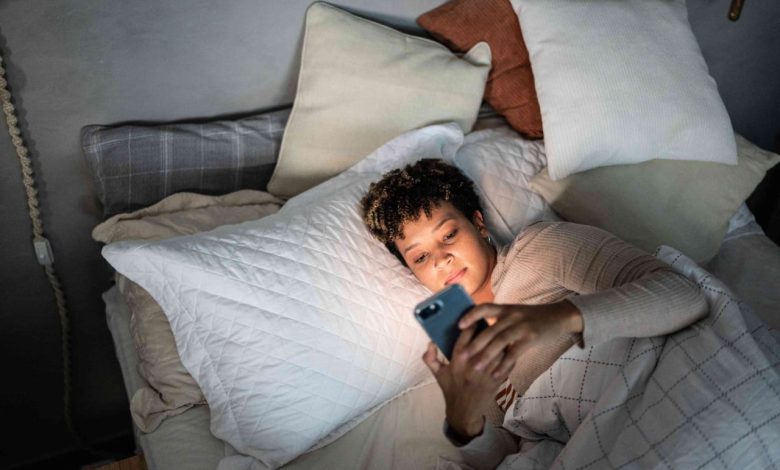
How Screen Time Affects Your Sleep
What’s the Problem With Screen Time Before Bed?
It’s not just about the content. It’s about what screens do to your brain and body.
1. Blue Light Confuses Your Brain
Screens—especially phones, laptops, and TVs—emit blue light, which mimics daylight.
When your brain sees this light at night, it thinks
“Oh, it’s daytime! Stay alert!”
This stops melatonin (your sleep hormone) from being released properly.
Result? You don’t feel sleepy—even if your body is tired.
2. Your Brain Gets Overstimulated
Whether it’s watching reels, gaming, or replying to messages, your brain is constantly:
Processing new information
Reacting emotionally
Staying alert and engaged
That makes it harder to wind down.
Even after switching off the screen, your mind keeps running.
3. You Sleep Late Without Realizing
We often say: “Just 10 more minutes.” But before you know it—it’s 1 AM.
Screen time is sneaky. It extends your waking hours without you noticing.
And late sleep = poor quality rest, less deep sleep, and harder mornings.
What Happens When Screens Ruin Your Sleep?
If screen time messes with your sleep, you might start noticing:
Waking up tired even after 7–8 hours
Difficulty falling asleep or staying asleep
Headaches or eye strain
Mood swings or irritability
Low focus and energy during the day
Anxiety or sadness from social media overload
The worst part? It becomes a cycle.
You sleep badly → feel tired → scroll to “relax” → sleep badly again.
But I Use My Phone to Relax—What Can I Do?
Good news: You don’t have to quit screens. You just need to use them mindfully.
Here’s how:
7 Simple Ways to Reduce Screen-Time Impact on Sleep
Set a digital curfew:
Try turning off all screens 30–60 minutes before bed. Let your brain cool down.Use blue light filters or night mode:
Most phones and laptops have this setting. Use it after sunset.Keep the brightness low at night:
Dim your screen as the day ends. Your eyes and brain will adjust.Avoid stimulating content before bed:
No scary movies, intense games, or drama-filled DMs. Choose calm or feel-good content, if anything.Replace screens with wind-down activities:
Read a physical book
Listen to soft music or a sleep podcast
Do light stretches
Journal your thoughts
Drink warm milk or herbal tea
Keep your phone away from your pillow:
Even if you don’t use it, notifications or lights can disturb your sleep.Try “No Phone Zone” for 15 minutes before bed:
Start small. You don’t need to be perfect. Just give your mind a few minutes of calm before sleeping.
Final Thoughts: Give Your Brain a Break
Your phone connects you to the world—but too much of it, especially at night, disconnects you from your own body.
Sleep isn’t just about closing your eyes—it’s about preparing your mind to let go.
So tonight, maybe:
Switch off a little earlier
Read a page instead of scrolling
Sit quietly with your thoughts for 5 minutes
Let your mind breathe. Let your eyes rest. Let your body sleep.
Your screen can wait.
Your sleep can’t.










